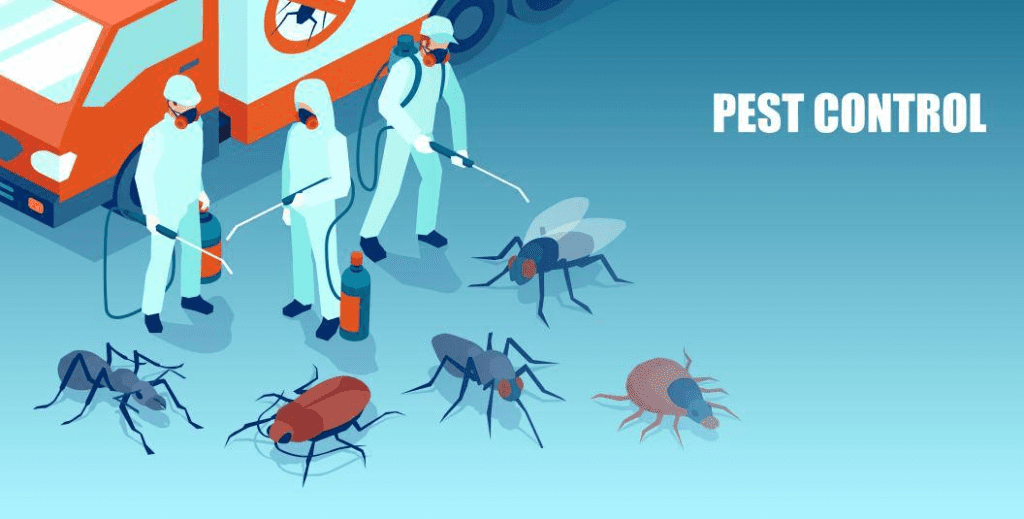What is natural pest control? As gardeners expert, we all know that pests are a constant problem that can ruin our hard work and destroy our beloved plants.

But did you know that there are natural ways to control pests that don’t involve harmful chemicals or pesticides?
We understand the frustration and disappointment that comes with losing your plants to pests.
We created this guide to help fellow gardeners like us find natural and effective ways to control pests without the use of harmful chemicals.
Our goal is to provide a comprehensive and easy-to-understand guide that anyone can use to protect their plants and maintain a healthy and beautiful garden.
In this article, we will explore the world of natural pest control, and provide you with the tips and tricks you need to keep your garden healthy and thriving.
Key Takeaways
- Natural pest control is a method of controlling or eliminating pests that damage plants or crops using environmentally friendly and safe techniques.
- The three methods of natural pest control are physical barriers, biological controls, and cultural practices.
- Physical barriers include the use of netting, row covers, and fences to keep pests away from plants.
- Biological controls involve using natural predators, parasites, and pathogens to control pests. Examples include ladybugs, parasitic wasps, and Bacillus thuringiensis (Bt).
- Cultural practices involve making changes to gardening techniques to reduce the likelihood of pest infestations. Examples include crop rotation, companion planting, and proper watering and fertilization.
What is Natural Pest Control?
Natural pest control is the use of natural methods to control or eliminate pests that can damage plants or crops.
These methods are environmentally friendly and safe for both humans and animals.

Natural pest control can involve a combination of techniques, including physical barriers, biological controls, and cultural practices.
Physical Barriers
Physical barriers are an effective way to keep pests from damaging your plants. Some examples of physical barriers include:
- Netting: This is a fine mesh material that is placed over plants to prevent insects from landing and laying eggs.
- Row covers: These are lightweight fabric covers that are placed over plants to protect them from insects and other pests.
- Fences: Fences can be used to keep larger pests, such as rabbits and deer, out of your garden.
Biological Controls
Biological controls are the use of natural predators, parasites, and pathogens to control pests.
These methods are safe and effective, and can be used to target specific pests. Some examples of biological controls include:
- Ladybugs: Ladybugs are natural predators of aphids, mites, and other insects that can damage plants.
- Parasitic wasps: These wasps lay their eggs inside the bodies of pests, killing them from the inside out.
- Bacillus thuringiensis (Bt): Bt is a bacteria that is used to control caterpillars and other insects that can damage plants.
Cultural Practices
Cultural practices involve making changes to your gardening techniques to reduce the likelihood of pest infestations. Some examples of cultural practices include:
- Crop rotation: This involves rotating the types of crops you plant each year to prevent pests from building up in the soil.
- Companion planting: This involves planting certain plants together that have a mutually beneficial relationship, such as marigolds and tomatoes.
- Soil improvement: Healthy soil can help prevent pests from infesting your plants. Adding compost, mulch, and other organic matter can improve soil health and reduce pest problems.
Benefits of Natural Pest Control
There are many benefits to using natural pest control methods in your garden. Some of these benefits include:
- Environmental friendliness: Natural pest control methods are safe for the environment and do not harm beneficial insects, animals, or plants.
- Cost-effectiveness: Many natural pest control methods are inexpensive and can be done using materials you may already have on hand.
- Health benefits: Natural pest control methods do not expose you or your family to harmful chemicals, reducing the risk of health problems.
- Increased plant health: Using natural pest control methods can help your plants grow stronger and healthier, resulting in better yields and more beautiful gardens.
Conclusion

Pests are a constant problem for gardeners, but natural pest control methods can provide a safe and effective way to protect your plants.
By using physical barriers, biological controls, and cultural practices, you can keep pests at bay and maintain a healthy and beautiful garden.